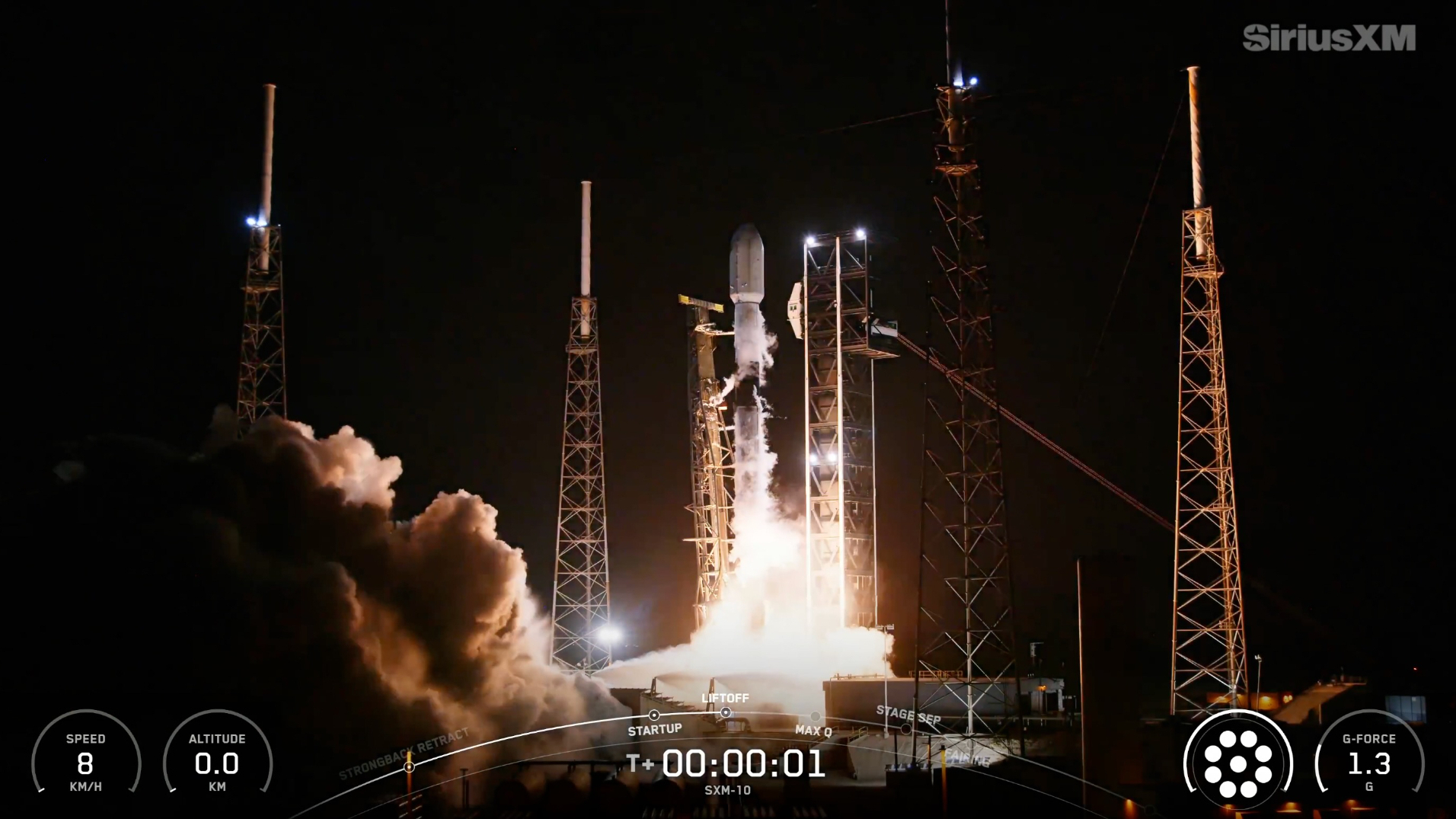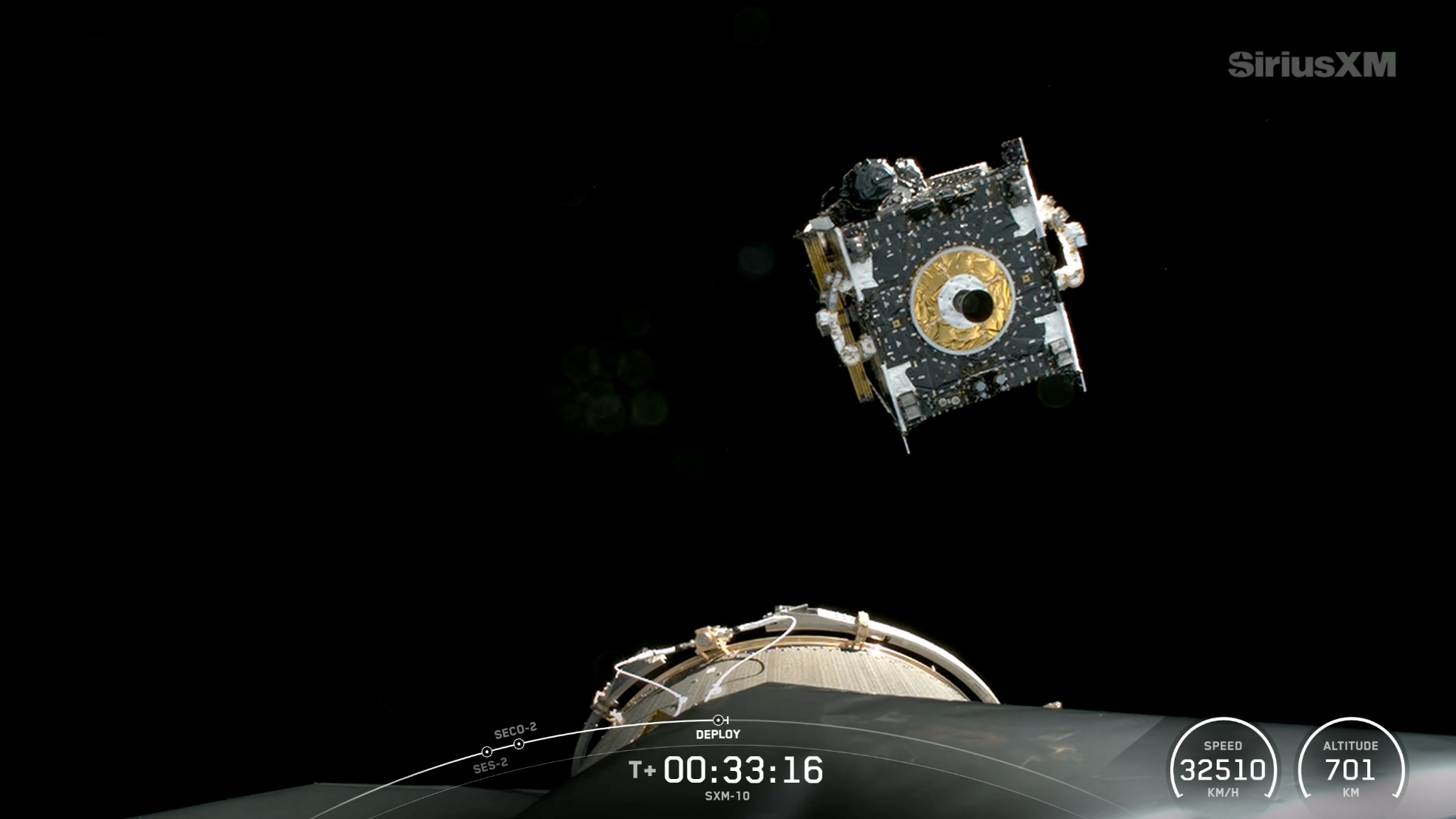SpaceX launched the SXM-10 satellite for SiriusXM early Saturday morning (June 7), adding another spacecraft to the company's broadcasting constellation.
A Falcon 9 rocket carrying SXM-10 lifted off from Florida's Cape Canaveral Space Force Station on Saturday at 12:54 a.m. EDT (0454 GMT).
The rocket's first stage came back to Earth about 8.5 minutes later as planned, touching down on the SpaceX drone ship "A Shortfall of Gravitas," which was stationed in the Atlantic Ocean.

It was the eighth launch and landing for this particular booster, according to a SpaceX mission description.
Among its previous missions were the Crew-9 and Fram2 astronaut flights and the liftoff on Jan. 15 of this year that sent two private moon landers — Firefly Aerospace's Blue Ghost and ispace's Resilience — toward Earth's nearest neighbor.
Blue Ghost aced its lunar touchdown on March 2, but Resilience crashed during its landing attempt on Thursday (June 5).

The Falcon 9's upper stage carried SXM-10 to geosynchronous transfer orbit high above Earth on Saturday, deploying it there about 33 minutes after launch as planned.
Breaking space news, the latest updates on rocket launches, skywatching events and more!
The 14,100-pound (6,400 kilograms) satellite, which was built by Maxar Technologies, will now maneuver to join SiriusXM's radio constellation, adding its own capabilities to the mix.
Saturday's launch was SpaceX's second for SiriusXM in just six months; a Falcon 9 lofted the SXM-9 satellite in early December 2024.
SpaceX has now launched 69 Falcon 9 missions in 2025. Fifty-one of them have been dedicated to building out the company's Starlink broadband megaconstellation in low Earth orbit.
Join our Space Forums to keep talking space on the latest missions, night sky and more! And if you have a news tip, correction or comment, let us know at: community@space.com.

Michael Wall is a Senior Space Writer with Space.com and joined the team in 2010. He primarily covers exoplanets, spaceflight and military space, but has been known to dabble in the space art beat. His book about the search for alien life, "Out There," was published on Nov. 13, 2018. Before becoming a science writer, Michael worked as a herpetologist and wildlife biologist. He has a Ph.D. in evolutionary biology from the University of Sydney, Australia, a bachelor's degree from the University of Arizona, and a graduate certificate in science writing from the University of California, Santa Cruz. To find out what his latest project is, you can follow Michael on Twitter.
You must confirm your public display name before commenting
Please logout and then login again, you will then be prompted to enter your display name.
